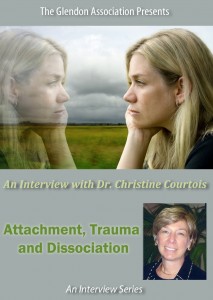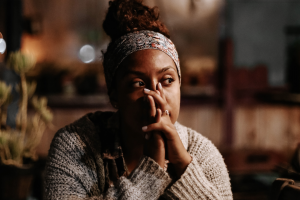Dr. Christine Courtois on the Critical Inner Voice and Psych-Ache: VIDEO
Dr. Christine Courtois talks about the critical inner voice and its effect on a person’s capacity for self-compassion.
The following transcript contains part of an exclusive interview with Dr. Lisa Firestone and Dr. Christine Courtois.
CC The whole issue of self-esteem and self-blame I find is so deeply embedded that it just takes a lot to be able to get there. You mentioned self-compassion. And a lot of the patients that I work with – they can’t get there. You say “compassion” and they’re sneeringly contemptuous of , “How can I be compassionate towards me?” And they’ll say things like, “If my parent, my mother, my father said this about me and they said it over and over again or they joined each other, then that must be what I am. Or that must be what’s supposed to happen.” So I find it to be deeply, deeply embedded and I think exactly what you’re saying about really surfacing the emotion and the hurt that goes with that and the pain and the anger and the shame. All of those are very primary emotions that need to be tapped and the person needs to get into. Of course, most of these patients are very avoidant and they would like to stay away from that because it’s very painful to them and it’s – and it may be what keeps them stuck in a rut of not ever being able to resolve anything. Not ever being able to differentiate and being chronically suicidal.
And I think that that’s where the concept of “psych ache” and “psychic pain” and how much it hurts to have a parent or someone really significant say something like that, that it gets in much, much more than it would be for a non-attachment figure or a non-significant person. And I think that when you look at parenting and help parents to be parents and to understand these things, you know, they need to know and appreciate the impact that they can have on a child and the impact that words have. Sometimes even more than behavior.
I had a patient just this week who has been extremely suicidal and self injurious who, as we have been talking about her history, she’s had a really hard time – her mother was very verbally and physically abusive from quite a young age and she’s had a really hard time explaining that in any way except that it was about her. And she’s almost like impervious to that it could be something wrong with her mother. And this week she broke down and she started to cry and she said, “How could a mother look at her child and see the pain on her child’s face and continue to do that? And, it must have been about me.” And it was so interesting because I was sitting there wishing she would say, “Oh, there was something wrong with my mother.” But she still can’t go there. It’s all about her and for me, episodes or stories like that always bring back the Voice Therapy and what I learned about this internalized voice that’s so negative and so harsh.
I have used Voice Therapy in that whenever I have cases like this, where a parent’s voice is coming through loud and clear – or somebody else significant, for that matter – is coming through loud and clear for someone who’s feelingvery despondent about themselves or suicidal, I always think about the voice and where that voice comes from.
Order the Full DVD Interview:
 Attachment, Trauma and Dissociation
Attachment, Trauma and Dissociation
In this DVD, Dr. Christine Courtois draws upon her expertise in the field of trauma to discuss a variety of trauma related topics. She begins by talking about her work with survivors of childhood trauma, including the roles of attachment and dissociation. Dr. Courtois discusses the concept of the ‘Critical Inner Voice’ and Voice Therapy. She addresses how families can be a source of trauma, citing that statistically speaking “the most dangerous people to children are their intimates.” Dr. Courtois places an important emphasis on the extent to which individuals often minimize complex trauma, essentially saying of their abuse “Aw, it wasn’t so bad.” She discusses trauma bonding, repetition of trauma, and the treatment of violent individuals. Finally, Dr. Courtois offers some optimal parenting strategies “to promote the child’s self esteem” including building resilience and repairing negative experiences so that the child feels responded to and cared about.
Read More from Dr. Christine Courtois
 Christine A. Courtois, PhD, ABPP is a Psychologist in independent practice in Washington, DC where she is the principal of Courtois & Associates, PC. She received her PhD from the University of Maryland in College Park, in 1979. Dr. Courtois is immediate Past-President of Division 56 (Psychological Trauma) of the American Psychological Association and has recently published a revision of Healing the Incest Wound: Adult Survivors in Therapy (2010, 1988) and Treating Complex Traumatic Stress Disorders: An Evidence-Based Guide (2009) co-edited with Dr. Julian Ford. Her new book, The Treatment of Complex Trauma: A Sequenced, Relationship-Based Approach, co-authored with Dr. Ford, will be published by Guilford later this year. She is currently co-editing another book with him on the treatment of complex traumatic stress disorders in children (Guilford) and co-editing a book with Drs. Donald Walker and Jamie Aten on trauma and spirituality (American Psychological Association Books) to be published in 2013. She has authored two other books,Recollections of Sexual Abuse: Treatment Principles and Guidelines (1999) and Adult Survivors of Child Sexual Abuse: A Workshop Model (1993). Dr. Courtois has published numerous articles and chapters on related topics. She is a Founding Associate Editor of the new APA Division 56 journal, Psychological Trauma: Theory, Research, Practice, & Policy. She is Co-Founder (in 1990, with Joan Turkus, MD) of The CENTER: Posttraumatic Disorders Program, Washington, DC where she served as Clinical and Training Director for 16 years.
Christine A. Courtois, PhD, ABPP is a Psychologist in independent practice in Washington, DC where she is the principal of Courtois & Associates, PC. She received her PhD from the University of Maryland in College Park, in 1979. Dr. Courtois is immediate Past-President of Division 56 (Psychological Trauma) of the American Psychological Association and has recently published a revision of Healing the Incest Wound: Adult Survivors in Therapy (2010, 1988) and Treating Complex Traumatic Stress Disorders: An Evidence-Based Guide (2009) co-edited with Dr. Julian Ford. Her new book, The Treatment of Complex Trauma: A Sequenced, Relationship-Based Approach, co-authored with Dr. Ford, will be published by Guilford later this year. She is currently co-editing another book with him on the treatment of complex traumatic stress disorders in children (Guilford) and co-editing a book with Drs. Donald Walker and Jamie Aten on trauma and spirituality (American Psychological Association Books) to be published in 2013. She has authored two other books,Recollections of Sexual Abuse: Treatment Principles and Guidelines (1999) and Adult Survivors of Child Sexual Abuse: A Workshop Model (1993). Dr. Courtois has published numerous articles and chapters on related topics. She is a Founding Associate Editor of the new APA Division 56 journal, Psychological Trauma: Theory, Research, Practice, & Policy. She is Co-Founder (in 1990, with Joan Turkus, MD) of The CENTER: Posttraumatic Disorders Program, Washington, DC where she served as Clinical and Training Director for 16 years.









Leave a Reply